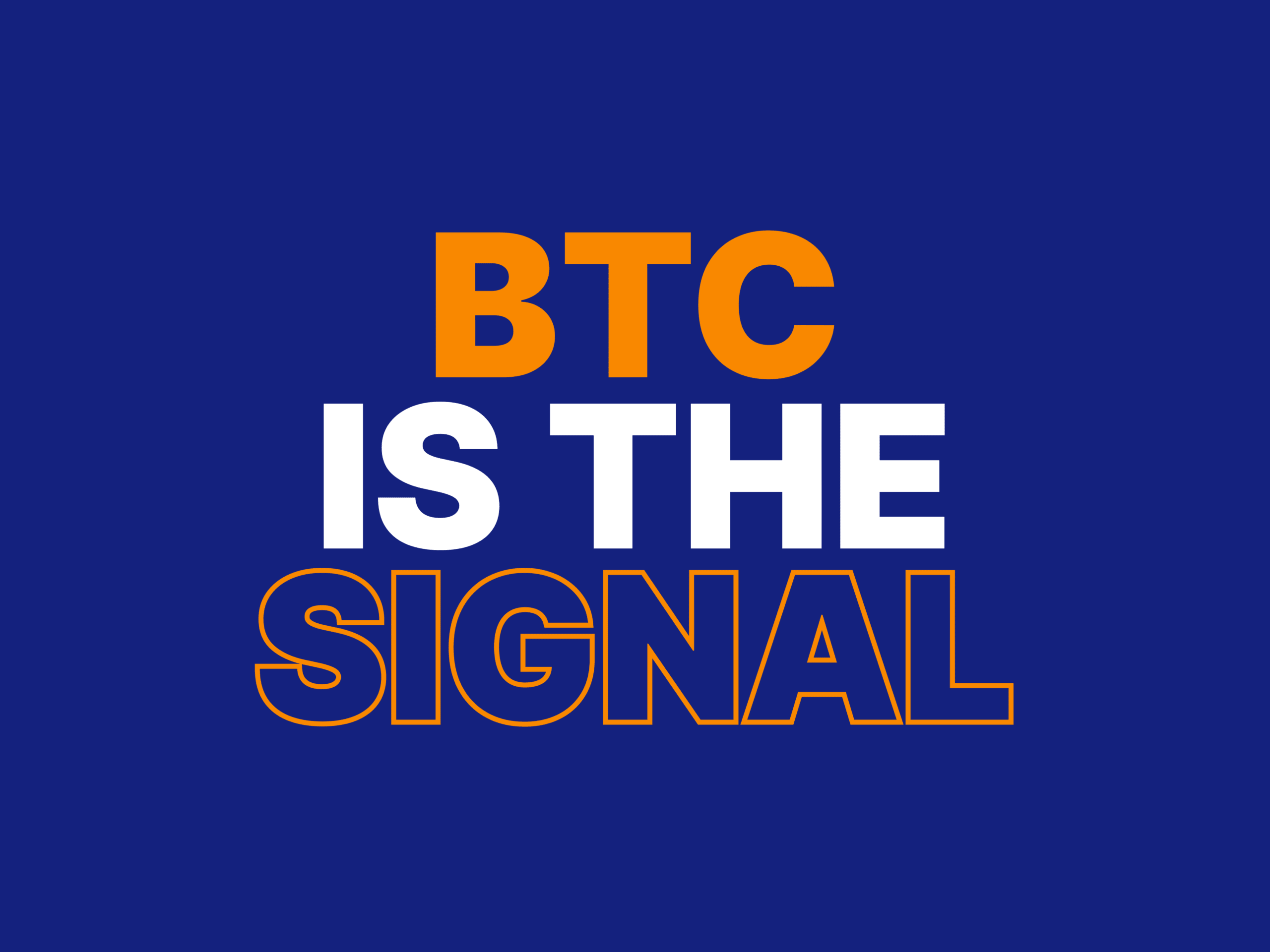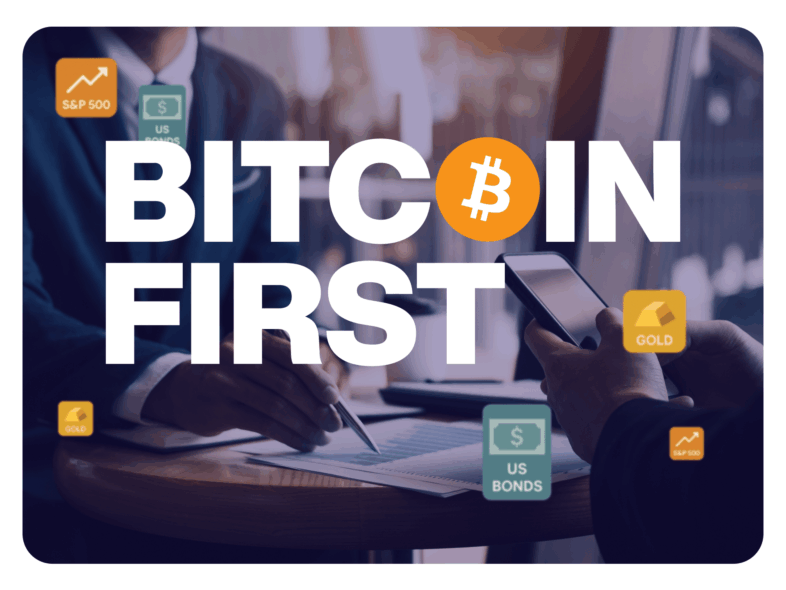The Covid-pandemic has triggered some of the most reckless government spendings in recent history and sent valuations of companies that jumped on the ‘crypto’ and ‘web3’ hype train in astronomical spheres.
In early 2022 ‘crypto’ thrived, and financial recklessness was prevalent. A JPEG picture of a rock sold for 1.3 million USD. Matt Damon compared buying altcoins with exploring space. Or the first ascent of a mountain in a cocky ad called ‘Fortune Favours the Brave’. There were multiple high-budget Superbowl ads by young crypto exchanges like FTX – then valued at $32 billion. ‘Yield farming’ or ‘staking’, aka earning interest on various crypto assets, was presented by influencers as a no-brainer way of earning ‘passive income’.
Bitcoin was perceived as ‘boring’. It didn’t earn you any dividend-like income. It didn’t have a founder with a big vision. Bitcoiners were mocked for telling people not to trust even the biggest names in the ‘crypto industry’. And for reminding everyone repeatedly about the importance of self-custody.
‘Crypto’ Is Crumbling – Again
Fast forward not even 12 months. While the ‘crypto industry’ promised to bring transparency and fairness to the financial industry, they would shame the likes of Bernie Madoff and Charles Ponzi. One of the most popular altcoins, Luna and its closely connected stablecoin TerraUSD (UST), collapsed in May 2022. About a month later, the Three Arrows Capital (3AC) cryptocurrency hedge fund imploded, taking many players down.
Celsius, a popular staking and lending platform that worked closely with the regulated (and now also defunct) German ‘neo-bank’ Nuri, filed for bankruptcy in July 2022. The company marketed itself as a ‘crypto bank’, promising users returns of up to 17 percent. Behind the scenes, users transferred the ownership of their deposited assets to Celsius, technically making the users unsecured creditors. Meanwhile, the trading volume on OpenSea, the leading marketplace for NFTs, tanked 99 percent from its all-time high.
And then there is FTX-founder Sam Bankman-Fried, who was called the ‘next Warren Buffet’ just a couple of months ago. While the crypto exchange he launched in 2019 reached a mind-blowing valuation of $32 billion in early 2022, its implosion in November 2022 is sending not only its altcoin FTT close to zero but also the reputation and trust of this whole industry.
Once again, people realize: Not your keys, not your coins. And: Bitcoin-Only and Self-Custody are the most practical ways to shield you from collapsing exchanges as we see again.
Celsius And FTX Hurt Newbie Retail Investors Most
What sucks is that the recent ‘crypto’ implosions mostly hurt people who wanted to make quick gains and believed the promises of high-profile companies and influencers. No matter how you frame it: The current situation is a disaster for hundreds of thousands of people around the globe. There is a lesson to be learned for everyone who thought ‘number will go up’ forever. For many, it is the first time they encounter volatility in a risky market.
In addition to that, we now know that the likes of FTX were highly leveraged companies that used their out-of-thin-air tokens to bolster their balance sheets and to take on loans. Plus, they used customer funds for their own risky gambles.
Bitcoin Is About Trustlessness, Not Gambling
The solution is not to trust the next crypto company that tells you you can trust them. The solution is to take your financial freedom into your own hands, avoid altcoins and altcoin casinos, stay humble and focus on Bitcoin.
The thing is: People are desperate for ways to save money again. Solutions that don’t get eaten away by inflation or high fees. Solutions that are ready for the digital age and that can’t be frozen or censored in any way. Despite the high volatility, Bitcoin remains an excellent long-term investment, especially when you follow simple rules like sticking to Cost Averaging and always holding your own keys.
We must be aware that if we keep acting like gamblers, it will be a gamble. While investing platforms push for financial education, the reality is that most of their revenue comes from an (until recently) never-ending stream of new hype and trends. The more unsure and FOMO-driven their users are, the more money they make through swing trading. The ethos of Bitcoin investing is entirely different: thinking long term, only investing reasonable amounts of money, and using cost averaging to flatten out volatility is what Bitcoin investors have been saying over and over for years.
Bitcoin Is Certainty In An Uncertain World
Bitcoin is not Crypto. All other cryptocurrencies are start-ups and ponzis at worst, with many doomed to fail from the outset. New projects come and go rapidly and are temporarily suspended by immature actors who are only out for themselves. The worst bit? The fortunes of these rogue coins directly impact bitcoin in terms of both value and reputation.
Zooming out a bit and going back in time illustrates that the top cryptocurrencies behind Bitcoin keep changing. In 2017 it was a bubble fueled by ‘revolutionary’ startups without a product but the promise to do something with ‘blockchain technology’. Most of the top 10 cryptocurrencies from even 3 years ago are forgotten by now, except Bitcoin, Ethereum, and Tether.
In 2021 the narratives became even more opaque and vague, promising an entirely new version of the whole internet summed up by the buzzword ‘web3’. So far, blockchain is only solving one problem, which is Bitcoin’s decentralized and deliberately slow and inefficient database. This is how open-source money is made possible without a single point of failure and how an uncensorable asset akin to digital gold can exist.
Despite All The Bad News: Bitcoin Is Looking Healthier Than Ever
Among all the negative news from a geopolitical perspective, and now once again a couple of crypto collapses, we’re seeing that the Bitcoin network itself and people constantly stacking sats are not only not very affected by all this, but are looking more bullish than ever.
- Bitcoin’s hash rate is at an ATH
The Bitcoin network’s hashrate, aka its total computing power, recently reached another all-time high. So even though the price of bitcoin is affected by geopolitical uncertainty, and multiple collapses within the crypto industry, the Bitcoin network itself is getting stronger and stronger.
- Bitcoin is increasingly seen as its own asset class
Throughout 2022 we’ve seen positive comments from the traditional financial industry about Bitcoin. BlackRock, the largest asset manager in the world, said in August 2022: “Bitcoin is the oldest, largest, and most liquid crypto asset, and is currently the primary subject of interest from our clients within the crypto asset space.” Fidelity published a report in January 2022 called ‘Bitcoin First’ outlining their view: “As a monetary good, bitcoin is unique. Therefore, not only do we believe investors should consider bitcoin first in order to understand digital assets, but that bitcoin should be considered first and separate from all other digital assets that have come after it.”
- Bitcoin investors continue to buy BTC aggressively
Despite heavy sell-offs across tech stocks and crypto assets, data from analytics company Glassnode shows that smaller bitcoin investors continue to accumulate heavily. Especially retail investors holding less than 1 BTC are stacking some serious sats since the beginning of this bear market.
- Innovation on Bitcoin is still in its infancy
Similar to Bitcoin’s hashrate, the Lightning Network is also constantly growing. Additionally, Lightning Network infrastructure firm Lightning Labs recently released a test version of the Taro daemon, a new piece of software that will allow Bitcoin developers to create, send and receive assets on the blockchain. Taro is a Taproot-powered protocol introduced in April that allows bitcoiners to issue assets such as stablecoins on the Bitcoin blockchain.
Stay Humble, Stack Sats
The fundamentals haven’t changed. In fact, the current turmoil is a reminder of some core principles we at Relai will continue to double down on: Bitcoin-only, self-custody, and Swiss regulation. Bitcoin is an innovation that, for the first time, allowed true digital scarcity. It combined computer science achievements like a public ledger, timestamps, proof of work, and others to create a completely new and unique asset class on its own. An innovation like Bitcoin MUST be kept in your own wallet in order to make sense.
As a true Bitcoin-Only company, Relai only offers non-custodial wallets to our users. That means that we don’t hold any user funds and only rely on our users’ trust. To safeguard your bitcoin even more, we recommend other European companies such as Bitbox, Ledger, or Trezor as good options to keep your bitcoin safe.
Relai is a company run by Bitcoiners who believe in the fundamentals of Bitcoin. Our users are Bitcoiners and – despite all the bad news regarding the crypto market – are buying BTC like there is no tomorrow. In fact, we sold 120 bitcoin in the week since the FTX drama unfolded, a record for us. Our users share our conviction that Bitcoin is here to stay. And that it’s worth it stack sats even harder when the price goes down.
We can see that more and more people see Bitcoin-only and non-custodial as the true alternative to a trust-based financial and crypto system. We don’t need to conduct a ‘Proof of Reserves’ like many crypto exchanges, and brokers are now promising to do because we don’t hold any user funds. Like it should be.
That’s the whole point of Bitcoin.
Satoshi Nakamoto summed this up nicely when he released Bitcoin v0.1:
“The root problem with conventional currency is all the trust that’s required to make it work. The central bank must be trusted not to debase the currency, but the history of fiat currencies is full of breaches of that trust. Banks must be trusted to hold our money and transfer it electronically, but they lend it out in waves of credit bubbles with barely a fraction in reserve. We have to trust them with our privacy, trust them not to let identity thieves drain our accounts. Their massive overhead costs make micropayments impossible.”
To start buying bitcoin, download the Relai app from the Google Play Store or Apple App Store today.





